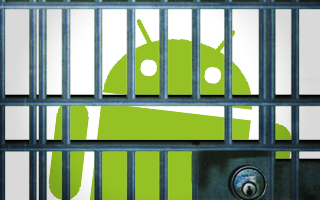 The judge in the ongoing Google/Oracle lawsuit over Android and its use of Java has issued a stay. That means the trial will be delayed, and no new date has yet been set.
The judge in the ongoing Google/Oracle lawsuit over Android and its use of Java has issued a stay. That means the trial will be delayed, and no new date has yet been set.
Sources close to the matter tell us the trial, which was previously scheduled to begin on October 31, had to be put off because of the judge’s full schedule, which includes a particularly thorny gang trial.
Also, the U.S. Patent and Trademark Office (USPTO) is still in the process of reexamining the patents and claims in question.
While many of us do not imagine the lawsuit will actually end in a trial but rather, as many corporate disputes do, in a settlement, the judge in the case had already ordered three mediation hearings. A Google spokesperson told VentureBeat today that all of those hearings have already taken place, and, as he said, “Nothing was settled.”
Google has been shown to be open to the idea of settling out of court. However, the search-focused company may actually be at some degree of fault — the operative word being “may.” And if Oracle can wrest prohibitive licensing fees out of Android sales, it might make a significant dent in the OS’s profit margins.
We asked our Google source whether the Android operating system itself was in danger of, at worst, coming to a premature close, as many consumers have worried throughout the initial findings of this lawsuit.
“Absolutely not. There’s no indication that Android is under threat,” said the Googler.
“From a consumer standpoint, consumers should not be concerned about losing their Android phone. But they should be concerned with the way in which Oracle is taking a platform they supported for years [the Java programming language] and is now trying to capitalize on our success.”
Oracle has owned and maintained the open-source Java language since its acquisition of former Java owner Sun two years ago. However, Android is also Java-based and has roundly crushed the Oracle-owned Java ME mobile OS. As you can imagine, that hasn’t gone over too well with Oracle, and the resulting lawsuit has raised massive questions about how intellectual property law comes into play when open-source software is on the line.
“We’re actively pushing back on Oracle to preserve choice in the marketplace in the long term,” said the Google rep, who repeated Google’s well-known intentions about keeping the Android operating system open-source.
Related articles
- Google’s patent plot thickens with new Microsoft lawsuit against Motorola Mobility (venturebeat.com)
- Google ups its Android patent defense with Motorola purchase (venturebeat.com)
- Sun Was Close to Licensing Java Patents to Google for $28M (pcworld.com)
- Oracle v Google: Ellison, Schmidt, and Page to take witness stand over Android (guardian.co.uk)



